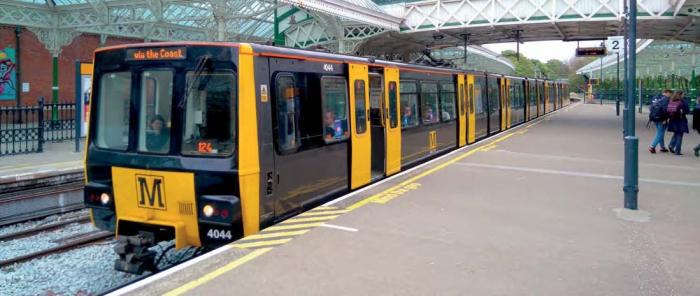
NORTH EAST Transport Authority Nexus has resumed direct operation of the Tyne and Wear Metro following the end of the concession held by DB Regio.
DB Regio had operated the Metro since April 2010, and the deal ended on 1 April 2017. Nexus opted not to exercise the option for a two-year extension to the contract, and intends to operate the network in-house for a period of two years to ‘prepare the Metro business for the significant change that will be brought by investment in a new train fleet’. A report to the North East Combined Authority Leadership Board in March 2016 also stated that neither Nexus nor DB was satisfied with the structure and financial and operational performance of the contract.
Nexus plans to replace the Metro fleet in the early 2020s at an estimated cost of £500 million, and is currently seeking funding from Government to support this. A report to the North East Combined Authority’s Transport Committee in April stated that Nexus’s ‘base case’ proposition is that it will procure, fund and own the rolling stock and a new depot. This is predicated on retention of existing grant funding from the Department for Transport, an element of which will be redirected to help pay for the new fleet. This scenario envisages Nexus providing a local contribution, building on the 50% contribution it already secured for running the Metro. Nexus hopes to receive formal feedback on the proposal by June.
The presentation to the meeting also included a high-level specification for the new fleet. The plan is to replace the existing 90-strong fleet with either 84 cars of equivalent length or 42 longer vehicles, as all services are currently scheduled for operation by pairs of vehicles. Stipulations planned include provision for a dual-voltage or ‘off wire’ running upgrade in addition to taking power from the Metro’s current 1,500V DC system, and adoption of a longitudinal seating arrangement, as this was preferred by respondents in market research.
